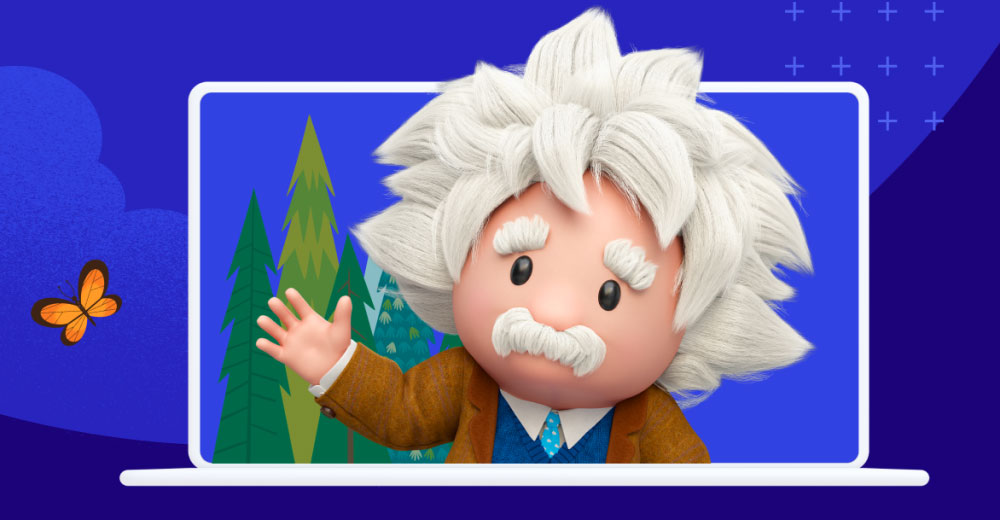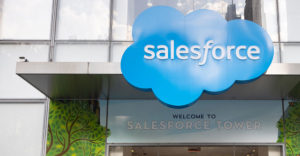CRM powerhouse Salesforce joined the ranks of Google and Microsoft Tuesday when it announced its own generative AI technology to deliver personalized content across every sales, service, marketing, commerce, and IT interaction in every Salesforce cloud.
Called Einstein GPT, the technology integrates with OpenAI and provides Salesforce customers with out-of-the-box generative AI capabilities.
Einstein GPT will infuse Saleforce’s proprietary models with the power of generative AI from an ecosystem of partners and real-time data from the Salesforce Data Cloud, which ingests, harmonizes, and unifies all of a company’s customer data, the company explained.
That data can then be connected to OpenAI’s advanced AI models through Einstein GPT, it continued, or a company could choose its own external model and use natural-language prompts directly within its Salesforce CRM to generate content that continuously adapts to changing customer information and needs in real-time.
Through generative AI, salespeople can create personalized emails for customers, generate specific responses for customer service professionals to more quickly answer customer questions, generate targeted content for marketers to increase campaign response rates, and auto-generate code for developers.
“Your sellers, your agents, don’t want to be doing rote, repetitive work. They don’t want to be crafting emails from scratch,” observed Kate Leggett, a vice president and principal analyst at Forrester Research.
“This technology allows those employees to focus on tasks that are more valuable to an organization,” she told CRM Buyer.
“You’re going to find this technology embedded in all CRM because it allows it to deliver better experiences to customers,” she added.
Improved Data Collection
Mark N. Vena, president and principal analyst at SmartTech Research in San Jose, Calif., believes generative AI can deliver tremendous benefits to CRM applications.
“As one of the leaders in CRM, Salesforce could use Einstein to maximize productivity for salespeople, who are sometimes loathed to do much of the manual population of data before and after a sales call,” he told CRM Buyer.
“CRM tools are only as good as the data they utilize, so more routine and accurate data population that results from a tool like Einstein could free up sales teams to concentrate on driving sales and providing accurate forecast information, not more bureaucratic work,” Vena added.
Introducing generative AI into CRM could address problems with automating the product category in the past.
“One of the big problems with this class of product is the requirement for human-to-human interaction, which not only doesn’t scale well but has proven both problematic to automate and staff,” explained Rob Enderle, president and principal analyst at the Enderle Group, an advisory services firm in Bend, Ore.
“This is a natural place to put generative AI because mature versions of that tool can seem far more similar to a person than to a computer,” he told CRM Buyer. “Done right, this should improve customer loyalty and retention.”
Pause Before Going Public
As powerful as generative AI can be for CRM, some caution should be taken when deploying it, maintained Jason Wong, a vice president and analyst with Gartner, a research and advisory company based in Stamford, Conn.
“Gartner recommends that businesses should not dive straight into giving customers direct access to something like ChatGPT for self-service since there are still inconsistencies in responses,” he told CRM Buyer.
Forrester’s Leggett pointed out that AI technology is only as good as the data it’s trained on. “If it’s asked a question that it hasn’t been trained on, you can get unreliable or incomplete information,” she explained.
“That’s why we say that before you let loose these technologies on customers, you may want to use them internally,” she said. “Let your sellers review what the chatbot produces, so there is a human in the loop.”
If an AI tool goes off the rails, it could alienate customers, Enderle added. “You wouldn’t want an insane employee interacting with customers,” he said. “A badly trained generative AI could do significant damage to your customer base.”
Conflicting Purposes
There are risks associated with generative AI, such as privacy and compliance issues around customer data, as well as data quality, which still requires humans to check and refine the AI’s output, Wong noted.
Generative AI can also affect customer service quality, he continued. “If employees get too complacent with auto-generated responses, then their service may start to lose that feel of personalization or empathy,” he said.
If AI is prioritized over “purpose-based” training and culture, it will be a problem, observed Micah Solomon, a customer service transformation consultant, and author based in Seattle.
“The great customer-focused organizations spend a lot of time keeping employees focused on a purpose, such as ‘Serve even the unexpressed needs and wishes of guests’ for The Ritz-Carlton, or ‘The Needs of the Patients Come First’ for the Mayo Clinic,” he told CRM Buyer.
“Using fabulous tools like AI can either serve a purpose or serve the implicit wishes of the company that set it up, with no consideration of your company purpose or goals,” he continued. “If so, that is a problem.”
What’s This All For?
In addition to Einstein GPT, Salesforce announced a new ChatGPT app for its team software Slack and an investment of US$250 million into a Generative AI Fund to finance projects for the technology.
“I could see how an AI-enabled Slack channel could help employees get answers faster on processes, product information, and even tech support-related questions without requiring human interaction,” observed Vena. “I could also see it being an effective tool helping new employees to get ramped up more quickly.”
Greg Sterling, co-founder of Near Media, a news, commentary, and analysis website, explained that the money in the AI Fund would be used for feature development. “These will be companies that Salesforce will keep close and can integrate with or acquire,” he told CRM Buyer.
Generative AI seems to be sweeping the world, but this is something we ought to be vetting more seriously, observed Denis Pombriant, a founder and managing principal of Beagle Research Group, a CRM analyst firm in Stoughton, Mass.
“In the long history of CRM, we’ve seen the technology gravitate toward providing greater certainty about customer interactions and also reducing human involvement,” he told CRM Buyer.
“In this scope, generative AI is just the latest innovation,” he continued. “We’ve seen what happens when AI runs off the tracks; some demos have been unmitigated disasters.”
“More importantly, I think we need to ask ourselves what all this is for,” he said. “If we’re expecting that the new, new thing will raise close rates or better predict marketing programs or solve customer service issues quicker or with less human input, be careful.”
“The technology is continually approaching an asymptote, meaning that the benefits become smaller and smaller while the effort involved expands,” he warned.


























































